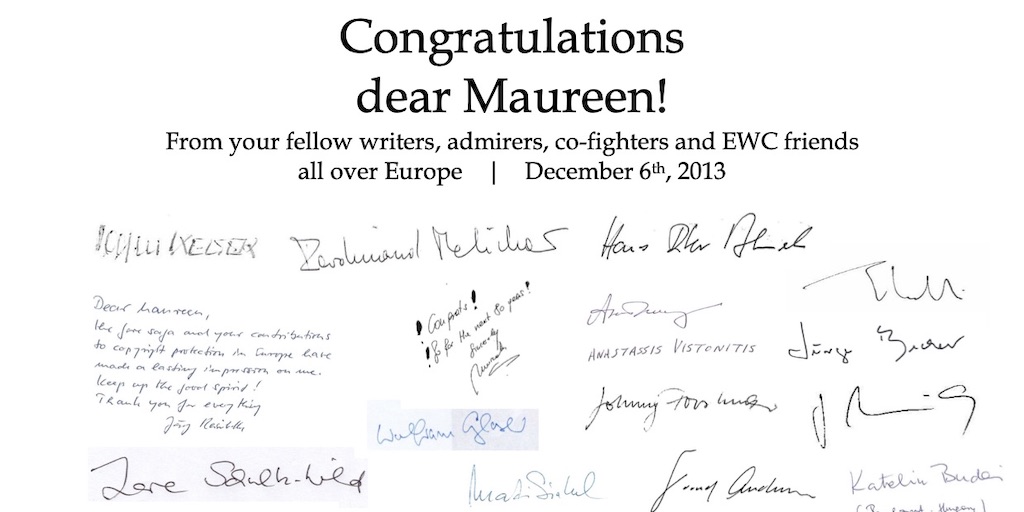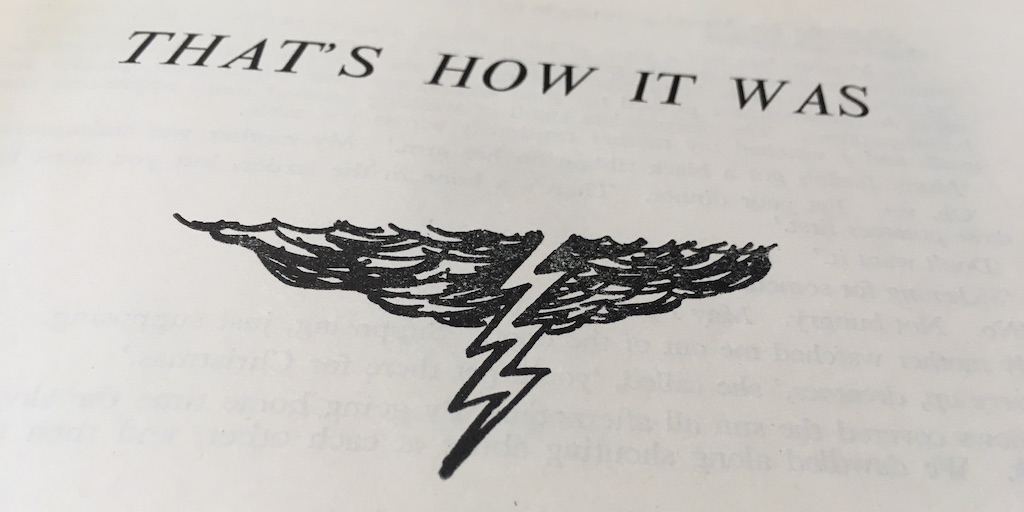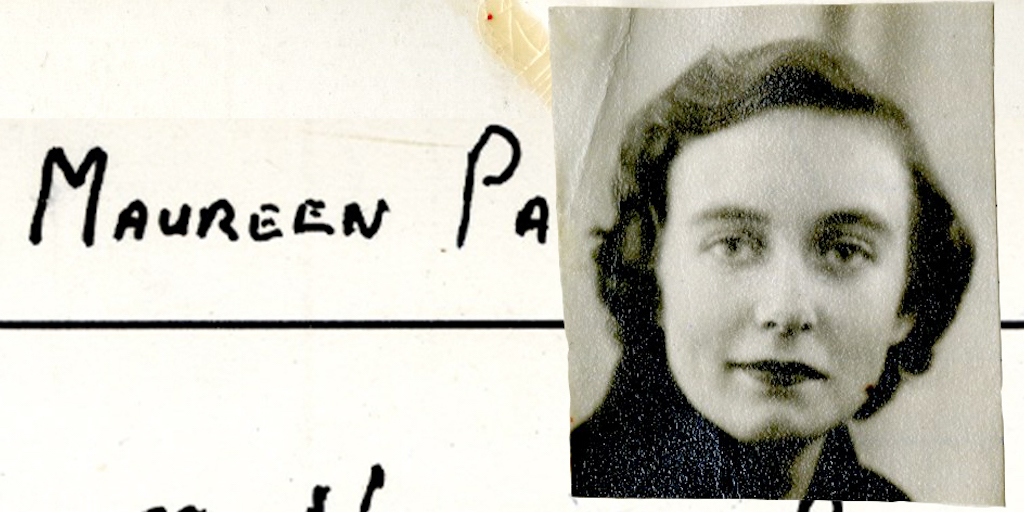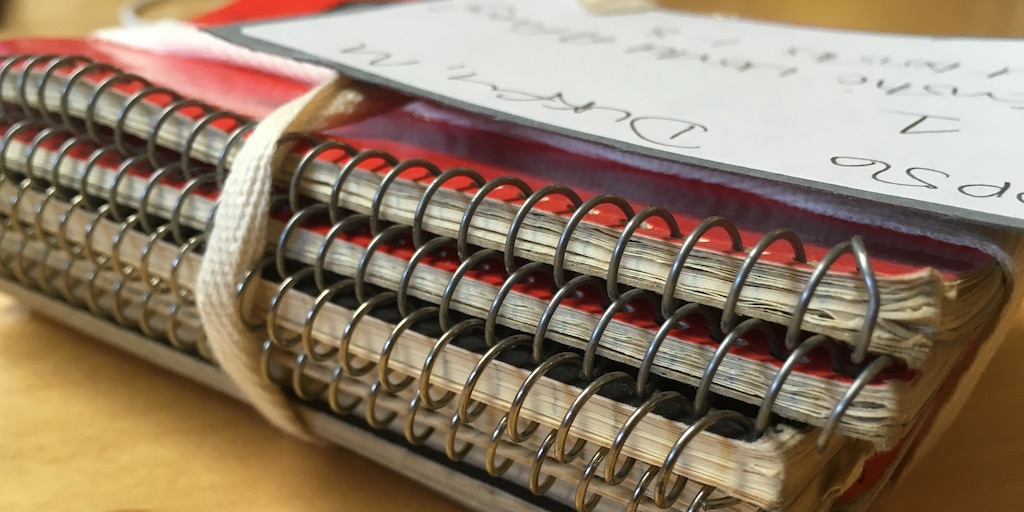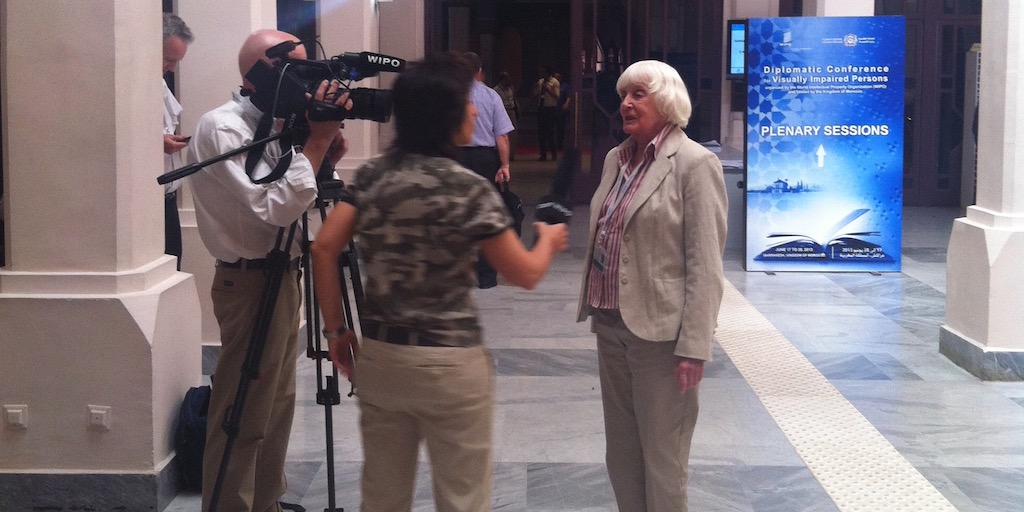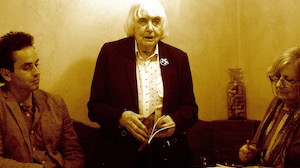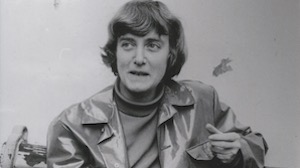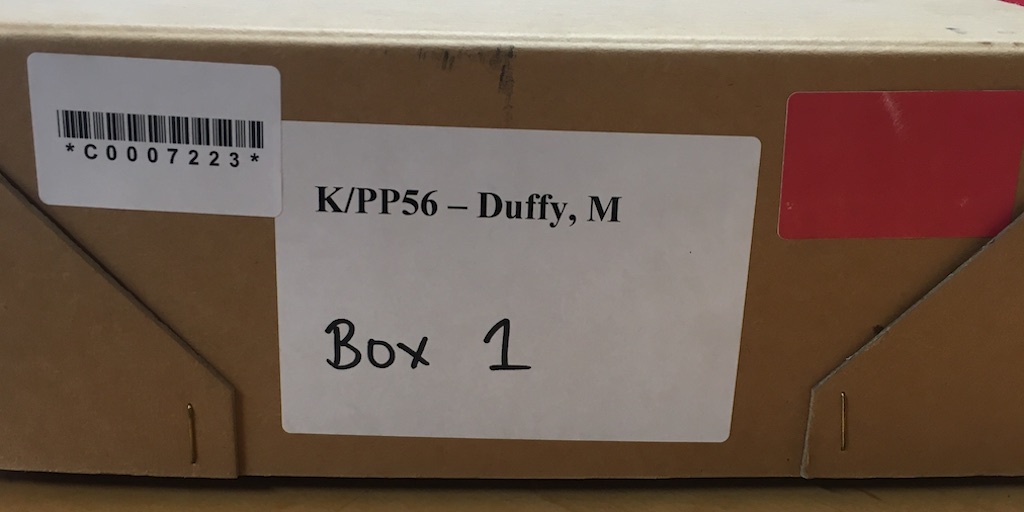Maureen Duffy at 80: In Times Like These
FIGHTING AND WRITING
Header image: Maureen Duffy, photographed by Euan Duff circa 1964.
Maureen Duffy's contribution to gay rights and lesbian visibility
by Jill Gardiner
A shorter version of this article originally appeared in Diva magazine, November 2013. www.divamag.co.uk - our thanks to Diva for permission to reproduce it here.
It's a sign of the times that there are now three openly gay women writers called Duffy. Poet Laureate (Carol Ann) and writer and director (Stella) are happy to pay tribute to their distinguished colleague Maureen Duffy, author of over 30 books, including novels, poetry, plays and nonfiction, who came out in the early 1960s, earlier than any other British woman in public life today.
Maureen Duffy is writing as much as ever. Her latest novel, In Times Like These (2013), just published on Amazon, tells the dramatic story of a lesbian MP and her artist girlfriend, in a mixed race relationship, who come under attack as the campaign for Scottish independence reaches its peak. It highlights the risks of divisions and disintegration and the importance of welcoming difference. Her new poetry collection Environmental Studies also reflects her enduring interest in diversity - past and present; human, insect and animal. Duffy's recent play Sappho Singing was performed in London and Brighton. She is open to approaches to stage her latest play, What you will, a love-story between women set around a school production of Twelfth Night, in which Viola and Olivia, who, Duffy points out, "are clearly in love with each other" are finally brought together. An internationally recognised expert on copyright law, and champion of writers' rights, Maureen is, among other responsibilities, President of Honour of the British Copyright Council, and a Fellow of King's College, London, which is hosting a conference about her writing on December 6th.
Despite featuring in Who's Who and having been invited to Buckingham Palace and 10 Downing Street, Maureen Duffy retains the insights of the outsider. She grew up in a single-parent family, living on benefits, and on her mother's earnings as a self-employed tailor. Duffy's father left when she was two months old. Her mother had TB, and was often in hospital, so Maureen spent time in care and with relations. When she was 14, her mother died. She then lived with her aunt, and later with her Latin teacher, who became her foster mother. A published poet at 17, Maureen did an English degree at King's, joined the Royal Court playwrights' group, and went into teaching.
"I was extremely lucky," Maureen Duffy recalls, "that I had a very ambitious mother who early on instilled in me that the one thing they can't take away from you is education. I was deeply encouraged as a child to be independent and brave, because she was so independent and brave." Her mother discussed everything with her as an equal - they once tried to puzzle out what male homosexuals might do in bed - but she recalls, "I had no idea about female homosexuality. It just wasn't on the radar in good working class families. But then I fell in love with a woman, and thought, "Oh my God, what have I been missing?" I found Simone de Beauvoir's The Second Sex - which was the first thing I had ever read, heard, or seen about female homosexuality - and read her chapter on it and thought, "Well, that's all right then!""
She and her girlfriend lived together on a houseboat, bought with the proceeds of Maureen's first TV screenplay. Aged 27, she became a full time writer, and lived an openly gay life, wearing trousers for ever after, frequenting gay pubs and discovering the Gateways Club. A publisher encouraged her to write her first novel, That's How It Was in 1962, based on her childhood, showing the development of her love for women, and her formation as a writer. This made her name. By 1966, she devoted her third novel, The Microcosm, to the lesbian world, centred around a fictional Gateways, renamed the House of Shades. The most significant novel about gay women since The Well of Loneliness, "but much more optimistic", The Microcosm became the new lesbian bible, informative about butch femme relationships, among other ways of being gay. It includes quotes from women Duffy had interviewed, intending originally to write a nonfiction book, which nobody dared publish at the time. Her publishers were nervous in case The Microcosm was prosecuted (like The Well), but relaxed when sales were good.[1] Its experimental stream of consciousness style, inspired partly by Virginia Woolf, has attracted and influenced other authors, including Ali Smith. It was also a departure from earlier "lesbian novels" which had tended to concentrate on a few individuals, as it covered a wide range of contrasting women, and also had an optimistic ending. It encouraged gay people to see themselves as a part of the wider world, in which they should mix and be active, in order to change the society which had driven them into the underground gay club where they felt safe and relaxed with each other.[2]
1967 was a turning point for Duffy. To her amazement, hundreds of lonely lesbians, inspired by reading The Microcosm, started writing to her for advice about their isolation. Duffy not only answered them all personally, but had to contend with several women turning up unannounced on her doorstep, asking the author's advice on whether they should leave her husbands.[3] The Microcosm also brought invitations to appear on TV in debates on legalising male homosexuality, like BBC2's Late Night Line Up,[4] and a commission for a chapter on "Lesbian London".[5] "It was much easier for me than for most people because I had given up my job. I felt I should speak out." This was notably brave in a period where very few gay women would appear openly on camera, in an era so prejudiced that women were abused in the street simply for wearing "male" trousers with front openings (rather than the side fastenings that signified female "slacks").[6] Duffy was also doing a great service to gay men, who could not openly advocate sexual freedom on screen without risking pursuit by the police, since male homosexuality was still illegal.
In 1967, Maureen also met the author Brigid Brophy, at a book launch on a boat. During their 12 and a half year partnership, they gained support for their long campaign to achieve Public Lending Right, still a lifeline to authors today. Brigid introduced Maureen to vegetarianism, inspired her to participate in animal rights campaigning and humanism, and they put on an art exhibition together. "It was based on plastic heads in see-through boxes. I did all the making, being practical, and we thought up the ideas between us." An exhibition like this features in In Times Like These.
Invited to write a play for the National Theatre with an all-female cast in 1968, Duffy created Rites, set in a Ladies public toilets, where a "male" interloper is attacked by a group for invading women-only space, but is discovered, too late, to be a woman in a suit. Its sequel, Washouse was set in a launderette run by a transgender woman in transition, and features a lesbian romance developing between two customers. In 1973, A Nightingale in Bloomsbury Square, Duffy's play about the final hour of Virginia Woolf's life, including much about her same sex loves, was performed at the Hampstead Theatre Club. It included Vita Sackville West as well as Freud, conjured up by Virginia's imagination.
Lesbian and gay characters featured prominently in some of Duffy's other plays in the 1970s and 1980s. Her TV drama Unfinished Business (though never broadcast) features two former schoolgirls who meet as adults at a school reunion, and the sexual tension that results when they gradually admit that they were in love. They have the possibility of spending the night together, but one is already happily in another lesbian relationship and opts for fidelity. Sarah loves Caroline (offered to various theatres in 1982) takes a similar theme one step further, as the former school friends in this play do get together, and are visibly happy together, though separated in the final Act by the death of one of them. This results in an intriguing meeting between the surviving partner and the son of the departed, and also in poignant dialogue with the shadow - ghostly or imagined - of her partner.[7]
Duffy's novels also continued to include gay material in the '70s and '80s. A lesbian twist is crucial to the plot of Housespy (1978), which also features colourful characters in gay bars, as does Londoners (1983). Many of Duffy's apparently male narrators could equally be read as butch lesbians, notably Al, in Londoners, who is of unspecified gender. A narrator of uncertain gender also features in Love Child (1971) in which Kit, the youthful narrator is consumed with jealousy of her mother's lover (whose gender is also unclear).
Duffy is often invited by LGBT groups to read her work. Top of the bill at Have a Word in Brighton in 2013 - when it was standing room only at the back - she was equally able to pull in a full house at a Sappho meeting in London in 1972, when, as Jackie Forster put it, "MAUREEN DUFFY made magic with her poems about love and sex in a relationship. Long will we remember her spellbound hour." A Sappho member from Suriname recalled the same event, "At eight with the frolic in full swing the guest of honour arrived, Maureen Duffy, one of Britain's leading writers...The announcement of the lady's arrival quickly set people sitting eagerly on anything they could find. When chairs and stools ran out they sat, legs crossed, on the floor...Maureen Duffy read some of her latest poems. They were all very sensitive." One woman hitch-hiked all the way from Cardiff to be there, and pronounced the experience well worth it, even though it took her 12 hours to hitch home again. [8] Maureen Duffy was a significant role model to lesbians in the early 1970s, when very few women in public life were out; and women were a minority presence in gay campaigning organisations, like the radical and visible Gay Liberation Front and the reformist liberal Campaign for Homosexual Equality (CHE). What made Duffy distinctive was not only her willingness to speak up, for CHE when asked, but the fact that she felt entirely comfortable about being homosexual, and consequently came across as reasonable, patient and persuasive. [9]
Duffy has never been afraid to make a progressive stand in defence of the rights of minorities, sometimes in advance of public opinion. Gay News was successfully prosecuted by Mary Whitehouse in 1977, for 'blasphemous libel', over the publication of James Kirkup's poem, in the voice of a gay centurion at the crucifixion, expressing his love for Christ. For Maureen Duffy this was a clear issue of freedom of speech, and she made speeches supportive of Gay News and published her own poem, 'The Ballad of the Blasphemy Trial' in protest. [10] As the first President of the Gay Humanist Group from 1980 (renamed GALHA - the Gay and Lesbian Humanist Association - in 1987) she spoke out on many issues, including at a 1989 press conference calling on governments 'to exercise compassion and positive action to protect the rights of everyone affected by HIV and AIDS, to enact anti-discrimination legislation and to fund the global fight against the disease...' [11] At the TUC conference in 1988, as President of the Writers' Guild, she successfully proposed a motion deploring the passing of what became known as Section 28 'as an infringement of the basic right to free speech and expression', and calling on a future Labour government to repeal it. Section 28 ruled that local authorities should not "promote homosexuality" or "promote the teaching in any maintained school of the acceptability of homosexuality as a pretended family relationship", and Labour did eventually repeal it in 2003, by which stage much cross-party opinion had also swung against it, as a result of the broadly based campaign against it, in which Duffy was an early and significant voice.[12]
Maureen Duffy has continued to accept requests to make media comments, which not all gay people in public life are prepared to do, even today. In 1991, she took part in BBC2's Saturday Night Out, saying that progress on gay rights since her earliest TV appearances had been more limited than she had hoped; and also calling on gay people to come out of the ghetto as well as out of the closet - a view she has been expressing since she wrote The Microcosm.[13] In 1995 she was happy to be featured by Gay Times as one of the 200 most influential lesbian and gay people in Britain.[14] She also agreed to be included on the Independent on Sunday's Pink List in 2005.[15] Duffy was a highly regarded and long standing President of GALHA, and continues to be a Distinguished Supporter of the British Humanist Association, since GALHA became the LGBT wing of the BHA in 2012. Meanwhile, gay female relationships have continued to feature prominently in her work, and are central to the narrative of Illuminations (1991) and Alchemy (2004); while In Times Like These (2013) places a lesbian couple in a prominent place in public life, reflecting the extent of social change since the start of Duffy's career.
Some of Maureen Duffy's earlier work is now being republished to mark her 80th birthday, including her London trilogy, Wounds, Capital and Londoners, with The Microcosm due to follow. With the ebook (and print) publication of these novels, The Orpheus Trail (a pacey thriller), and In Times Like These, a new generation can now download an author whose concerns are still contemporary. ("I do get very upset when people talk about 'scroungers'. Most people do what they can and if they are unlucky, they need support, not condemnation.") For Diva readers new to her work, Maureen Duffy also recommends Alchemy, whose young contemporary gay heroine "is in a law firm, hits the glass ceiling and a dying relationship, decides to start her own business, but to finance it she has to deliver Chinese takeaways on a motorbike." As Maureen Duffy concludes, "I think it is very important that gay women, because we are often made invisible, are shown as part of the living everyday world."
Acknowledgements and thanks
I am grateful to Maureen Duffy for a very helpful interview, and for her response to subsequent queries; and to the staff at King's College Archives for their help in enabling me to access plays and relevant papers. My thanks also to staff at the LSE Archive, the Bishopsgate Institute, and the British Library.
References
[1] Gardiner, Jill (2003) From the closet to the screen: women at the Gateways Club
1945-85: 102-108 gives fuller details of the impact of The Microcosm
[2] The Microcosm (1967 Panther ed.): 271
[3] Barber, Dulan (1973) 'Maureen Duffy talking to Dulan Barber' Transatlantic Review
Vol. 45 Spring 1973: 7
[4] [https://www.bbc.co.uk/programmes/p013h930] accessed 26.10.20.
[5] In Davies, Hunter (1967) New London Spy
[6] Inaugural speech as GHG President 17 Mar 1980 at Conway Hall [GALHA archive at
Bishopsgate Institute]
[7] Playscripts in King's College Archive
[8] Sappho magazine Vol 1 No 8 Nov 1972: 11 & Vol 1 No 10 Jan 1973:
[9] Sappho Vol 1 No 11 Feb 1973:12-13, 15
[10] The Freethinker Aug 1977 (http://www.pinktriangle.org.uk/glh/214/duffy.html
4.10.13.)
[11] Gay & Lesbian Humanist Vol 8 No 2 Winter 1988/9: 4
[12] Gay & Lesbian Humanist Vol 8 No 2 Winter 1988/9: 4
[13] Gay & Lesbian Humanist Vol 11 No 2 Winter 1991/2: 22
[14] 1995 May Gay Times: 96
[15] Independent on Sunday 26 Jun 2005: 10,11.
Sections and Chapters
Duffy and King's introduction
Katie Webb
Finding Maureen Duffy in the Archives
Patricia Methven
King's in Maureen Duffy's time
Christine Kenyon Jones
Kings, and Queens, Histories in Fact and Fiction
Clare A. Lees
Panel Summary: the city as a space for new possibilities
Phoebe Blatton
Writing, Rites, and Rights
John Stokes
A Window for Maureen Duffy
Clare Brant
Fighting and Writing introduction
Katie Webb
Duffy and the European Writers' Congress
Lore Schultz-Wild
An 80th Birthday Honorific Speech
Ingrid Protze
Memories of the German Writers' Union
Sabine Herholz
On Maureen
Katalin Budai
A copyright warrior and a true defender of rights
Olav Stokkmo
Recognising writers: responses, records, royalties
Katie Webb
Maureen Duffy's contribution to gay rights and lesbian visibility
Jill Gardiner
For Maureen Duffy, Poiêtes
Karen Gevirtz
Editor's introduction
Katie Webb
Maureen Duffy: Scrivener and Prophet
Charles Lock
Words that count: Maureen Duffy
Marina Warner
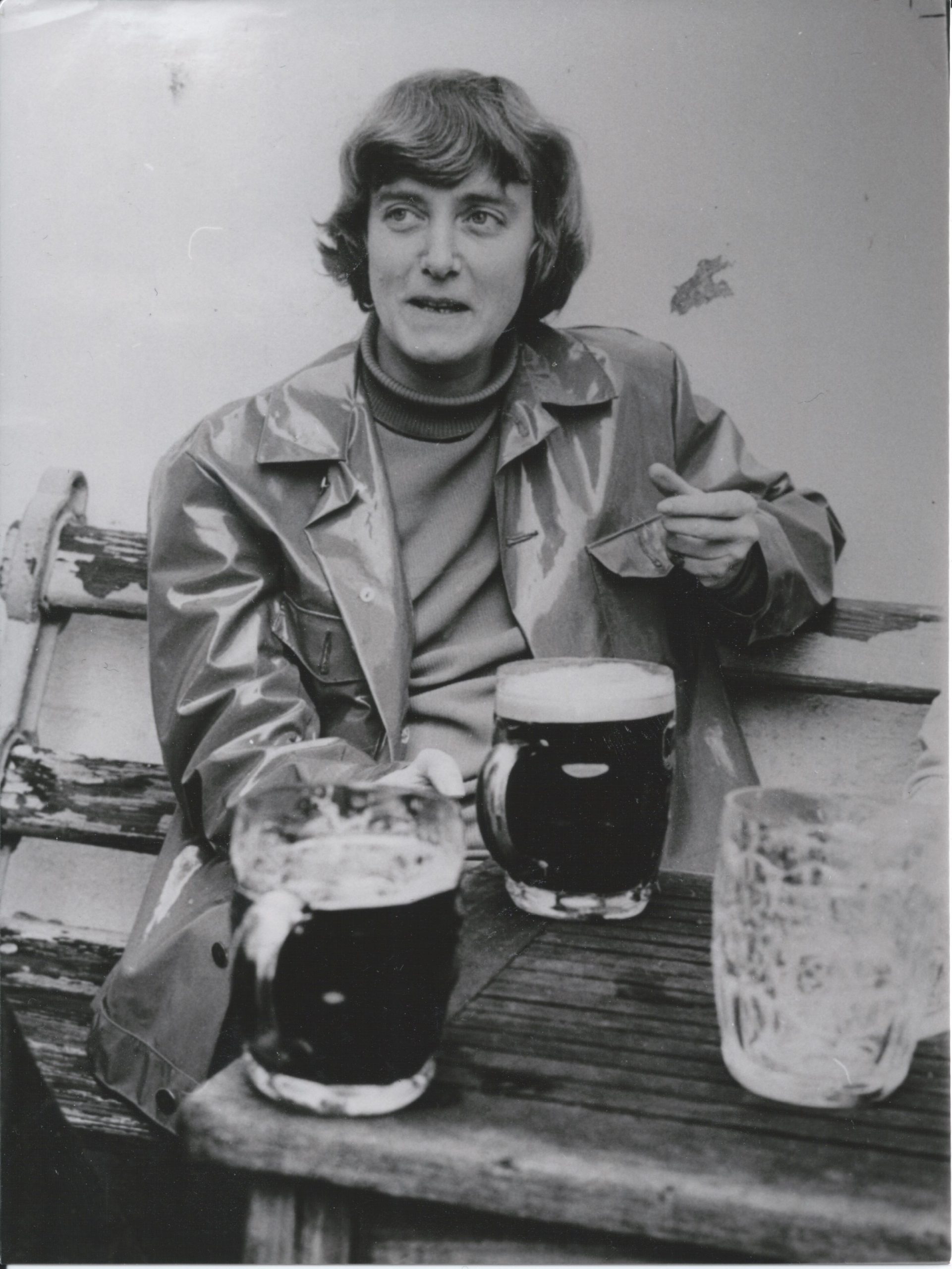
Maureen Duffy, photographed by Euan Duff circa 1964.
Browse articles on Fighting and Writing
